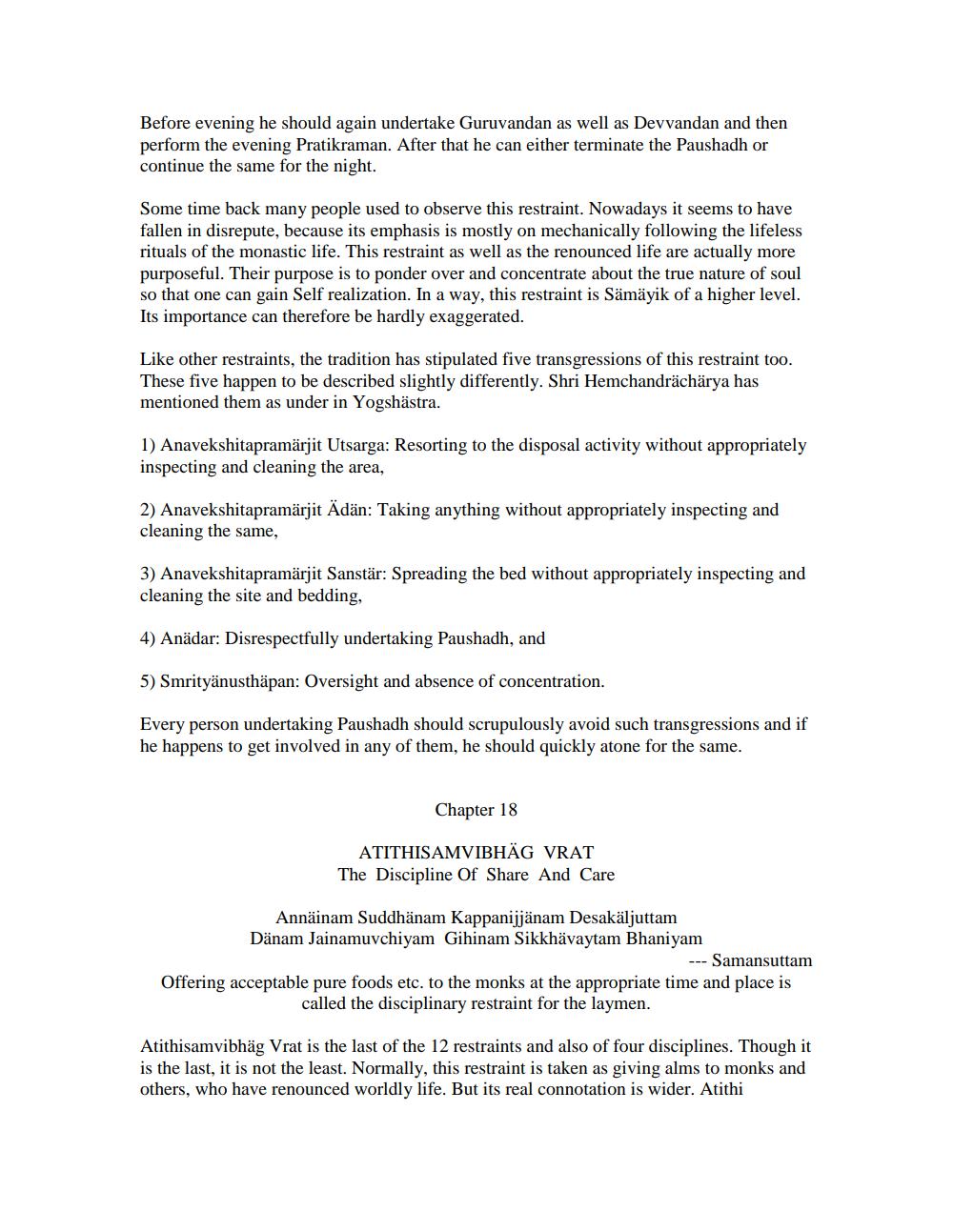________________
Before evening he should again undertake Guruvandan as well as Devvandan and then perform the evening Pratikraman. After that he can either terminate the Paushadh or continue the same for the night.
Some time back many people used to observe this restraint. Nowadays it seems to have fallen in disrepute, because its emphasis is mostly on mechanically following the lifeless rituals of the monastic life. This restraint as well as the renounced life are actually more purposeful. Their purpose is to ponder over and concentrate about the true nature of soul so that one can gain Self realization. In a way, this restraint is Sämäyik of a higher level. Its importance can therefore be hardly exaggerated.
Like other restraints, the tradition has stipulated five transgressions of this restraint too. These five happen to be described slightly differently. Shri Hemchandrächärya has mentioned them as under in Yogshästra.
1) Anavekshitapramärjit Utsarga: Resorting to the disposal activity without appropriately inspecting and cleaning the area,
2) Anavekshitapramärjit Ädän: Taking anything without appropriately inspecting and cleaning the same,
3) Anavekshitapramärjit Sanstär: Spreading the bed without appropriately inspecting and cleaning the site and bedding,
4) Anädar: Disrespectfully undertaking Paushadh, and
5) Smrityänusthäpan: Oversight and absence of concentration.
Every person undertaking Paushadh should scrupulously avoid such transgressions and if he happens to get involved in any of them, he should quickly atone for the same.
Chapter 18
ATITHISAMVIBHÄG VRAT The Discipline Of Share And Care
Annäinam Suddhänam Kappanijjänam Desakäljuttam Dänam Jainamuvchiyam Gihinam Sikkhävaytam Bhaniyam
--- Samansuttam Offering acceptable pure foods etc. to the monks at the appropriate time and place is
called the disciplinary restraint for the laymen.
Atithisamvibhäg Vrat is the last of the 12 restraints and also of four disciplines. Though it is the last, it is not the least. Normally, this restraint is taken as giving alms to monks and others, who have renounced worldly life. But its real connotation is wider. Atithi




